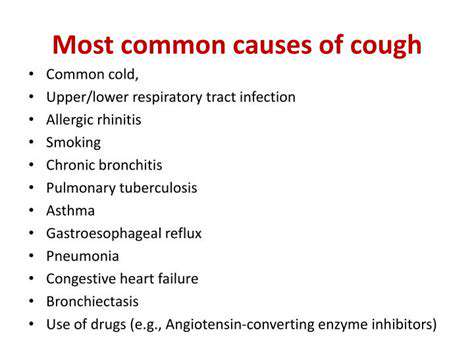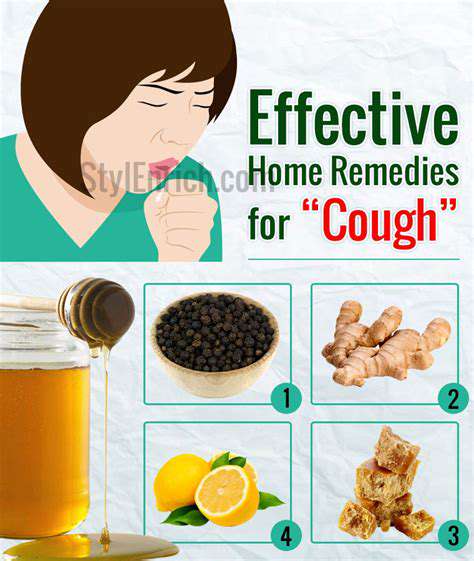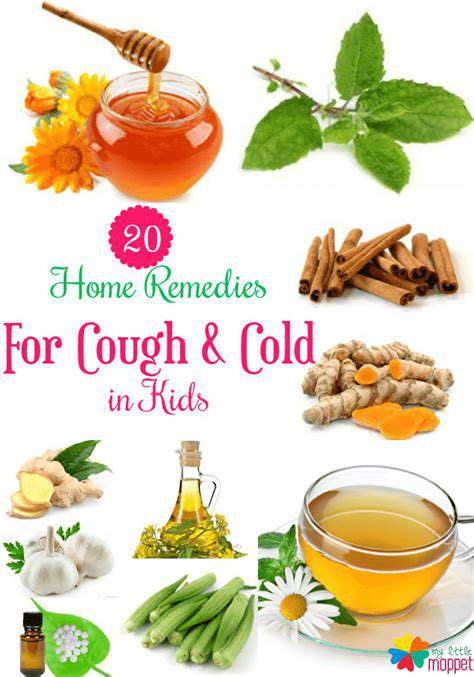Coughing Can Occur: Common Triggers and Remedies
Common Triggers of Coughing

1. Allergies and Irritants
Allergies can be a significant trigger for coughing, particularly in sensitive individuals. Common allergens include pollen, dust mites, and pet dander. These irritants can cause inflammation in the airways, leading to persistent coughing. Exposure to environmental irritants like smoke or pollution can exacerbate these symptoms. Individuals with allergic rhinitis often report that their cough worsens in certain seasons.
Moreover, strong odors from perfumes or cleaning products can lead to a reflex cough. For those affected, it is essential to identify and minimize exposure to such irritants. Keeping your living spaces clean and well-ventilated can help reduce allergens in your environment. Therefore, it’s crucial to monitor air quality and stay indoors when necessary, especially during high-pollen seasons.
Implementing air purifiers can also aid in reducing airborne allergens. Additionally, using hypoallergenic bedding and regularly washing linens can further decrease exposure. People suffering from allergies may benefit from consulting an allergist for proper testing and management strategies.
Recognizing symptoms early can lead to more effective management. Reducing exposure to allergens can significantly improve overall quality of life. Understanding your triggers is key in managing allergic coughs.
2. Respiratory Infections
Respiratory infections, including the common cold and flu, are frequent causes of coughing. These infections typically lead to inflammation in the throat and lungs. Coughing acts as a natural reflex to clear mucus and pathogens from the respiratory tract. However, it can be quite bothersome and persistent depending on the severity of the infection.
Coughs associated with respiratory infections often start dry and may eventually become productive, bringing up mucus. Staying hydrated is crucial during these infections, as it can thin mucus and make it easier to expel. Over-the-counter medications, such as expectorants, can also be beneficial. Nevertheless, one should be cautious and consult a healthcare provider when symptoms persist.
In some cases, viral infections can lead to secondary bacterial infections, which may require antibiotic treatment. If a cough lasts more than a few weeks, it is advisable to seek medical attention to rule out more serious conditions. Regular handwashing and vaccination can significantly reduce the risk of contracting respiratory infections.
Implementing good hygiene practices, such as covering your mouth when coughing, can help prevent the spread of infections. Staying home when sick not only helps with recovery but also protects others. By recognizing the signs of respiratory infections early, preventive measures can be taken to mitigate their impact.
3. Gastroesophageal Reflux Disease (GERD)
GERD, or gastroesophageal reflux disease, is another common cause of chronic cough. This occurs when stomach acid flows back into the esophagus, irritating the throat and triggering a cough reflex. Many individuals with GERD may not initially associate their cough with this condition. However, cough associated with GERD often worsens after eating or when lying down.
To manage a cough due to GERD, lifestyle changes such as avoiding heavy meals and elevating the head during sleep may help. Additionally, medications that reduce stomach acid can also provide relief from reflux symptoms. It's important to recognize that in some cases, untreated GERD can lead to more severe respiratory issues.
People diagnosed with GERD should work closely with their healthcare provider to tailor an effective treatment plan. Maintaining a healthy weight is crucial as obesity can exacerbate GERD symptoms. Keeping a food diary can assist in identifying trigger foods that worsen reflux and associated coughing.
Understanding the relationship between GERD and cough is essential for effective management. A multifaceted approach combining medication, lifestyle changes, and dietary modifications is often most effective. Educating oneself about GERD can significantly improve quality of life and reduce reliance on cough remedies.
4. Weather Changes and Dry Air
Changes in weather conditions can trigger coughing in many individuals. Cold air, dry environments, and sudden temperature fluctuations are common culprits. During winter months, indoor heating systems often dry out the air, which can irritate the respiratory tract. This irritation can lead to frequent coughing, particularly in sensitive individuals.
Using a humidifier can help introduce moisture into the air, alleviating dry cough symptoms. Staying hydrated is also crucial, as it helps maintain proper moisture levels in the throat. When the weather changes, it’s advisable to monitor one’s health and take preventive measures. Additionally, dressing appropriately for the weather can further protect respiratory health.
People with asthma or chronic bronchitis may notice their symptoms worsen during colder months. Awareness of personal sensitivities to weather changes can help manage coughing effectively. Regular exercise outdoors may help improve lung function, but it's essential to adapt to the weather accordingly.
In conclusion, understanding various triggers of coughing is vital in managing this common symptom. Consulting with healthcare professionals when experiencing persistent cough can lead to effective treatment and relief. Taking proactive steps to safeguard respiratory health can make a significant difference in overall well-being.
Effective Remedies for Coughing

Understanding the Causes of Coughing
Coughing is a reflex action that helps clear the airways of irritants such as smoke, allergens, or mucus. It can be caused by a variety of factors including infections, allergies, and environmental irritants. Identifying the underlying cause of a cough is crucial for effective treatment. The duration and type of cough can also provide significant insights into the cause. For instance, a dry cough may indicate irritation, while a productive cough often suggests a buildup of mucus.
Common respiratory infections, like the common cold or influenza, often lead to coughing as the body attempts to rid itself of the virus. Allergies to dust, pollen, or pet dander can also trigger a cough as the body's immune system reacts to these invaders. In some cases, chronic conditions like asthma or bronchitis may be responsible for persistent coughing. Understanding these triggers can empower individuals to manage their symptoms more effectively.
Environmental factors play a significant role in coughing as well. Exposure to pollutants, smoke, or strong odors can irritate the airways, prompting a cough. Seasonal changes can exacerbate allergies, leading to more frequent coughing. It's essential to assess your environment and practices if coughing persists. Recognizing whether the cough is a short-term reaction or a symptom of a more serious condition is vital for health management.
In summary, various causes contribute to coughing, from minor irritants to serious health issues. Staying informed about these causes can lead to quicker diagnosis and treatment. Seeking medical advice when necessary can ensure that coughing isn't just a minor annoyance but rather a signal from the body that needs to be addressed.
Home Remedies for Cough Relief
There are several effective home remedies that can help alleviate cough symptoms. Honey, for example, is a natural cough suppressant that can soothe an irritated throat and reduce coughing. Mixing honey with warm water or herbal tea can enhance its benefits. This remedy is safe for most adults and children over one year old.
Another popular remedy is steam inhalation, which can help loosen mucus and soothe inflamed airways. Adding essential oils like eucalyptus can enhance the soothing effects of steam. Simply filling a bowl with hot water, leaning over it, and covering your head with a towel to trap the steam can provide immediate relief. Remember to practice this with caution to avoid burns.
Saltwater gargles are also a time-honored method to relieve coughing and soothe a sore throat. Mix a teaspoon of salt in warm water and gargle several times a day. This solution can help reduce irritation and swelling. Staying hydrated is equally important, as it keeps the throat moist and helps thin mucus.
Lastly, using a humidifier can add moisture to the air, making it easier to breathe and reducing coughing, particularly in dry environments. Implementing these home remedies can provide significant relief from coughing and improve overall comfort. Always consult a healthcare provider if symptoms persist, as they can assess underlying conditions that need treatment.
When to Seek Medical Attention
While coughing is often harmless, there are times when it necessitates medical intervention. If a cough persists for more than three weeks, it is advisable to seek medical attention. A chronic cough could indicate a more serious underlying health condition that requires professional assessment. Regular check-ups can help identify these issues early.
Other warning signs to look out for include coughing up blood, experiencing shortness of breath, or wheezing. These symptoms may require immediate medical evaluation. Additionally, a cough accompanied by high fever, accompanied by chills, or severe fatigue may signal an infection that needs treatment.
It’s also important to watch for any sudden changes in a cough, especially if it develops into a barking sound or feels unusually harsh. Visiting a healthcare provider can help determine the cause and appropriate course of action. Individuals with pre-existing conditions like asthma or COPD should be more vigilant about their coughing symptoms.
Early intervention is key in managing any serious conditions. Being proactive in addressing unusual symptoms can prevent further complications and lead to quicker recovery. Understanding when to seek care can ensure a better outcome for those affected by severe coughing.
Over-the-Counter Solutions
For those seeking immediate relief from coughing, over-the-counter medications can be an effective option. Antitussives, such as dextromethorphan, are designed to suppress the cough reflex and provide comfort during dry coughing episodes. Always follow the recommended dosages to ensure safety.
Expectorants, such as guaifenesin, are another category of over-the-counter treatment. These medications help thin mucus, making it easier to expel and alleviating the associated coughing. Users should stay adequately hydrated while taking expectorants to maximize their effectiveness.
Besides medications, throat lozenges and cough syrups can provide soothing relief for scratchy throats. Many of these products contain soothing ingredients like menthol or honey that can help reduce cough intensity and discomfort. Always read labels for contraindications, especially if you have underlying health conditions or are taking other medications.
Consulting with a pharmacist can also provide guidance on choosing the right remedy based on symptoms. Staying informed about the different options available empowers individuals to effectively manage coughing at home. Considering the use of these products as part of a broader treatment plan can enhance overall symptom relief.
Preventive Measures to Reduce Coughing
Preventing coughing often involves taking steps to avoid its triggers. For individuals with allergies, minimizing exposure to known allergens is essential. This may include regular cleaning to reduce dust, using air purifiers, and avoiding outdoor activities during high pollen seasons. Understanding personal triggers can significantly reduce the occurrence of coughing episodes.
Additionally, maintaining good hygiene practices can help prevent respiratory infections that lead to coughing. Frequent hand washing and avoiding close contact with sick individuals are effective strategies. Vaccinations, such as the flu shot, can also help reduce the risk of infections that result in coughing.
Staying hydrated is vital for maintaining healthy mucous membranes in the respiratory system. Drinking plenty of fluids can help keep mucus thin and manageable, lessening the severity of coughs when they do occur. Herbal teas, broths, and water are excellent choices to maintain hydration.
Finally, considering lifestyle changes, such as quitting smoking or avoiding secondhand smoke, can greatly benefit those prone to coughing. Staying fit and healthy through regular exercise and a balanced diet strengthens the immune system and reduces respiratory issues. Implementing these preventive measures lays the groundwork for better respiratory health.
